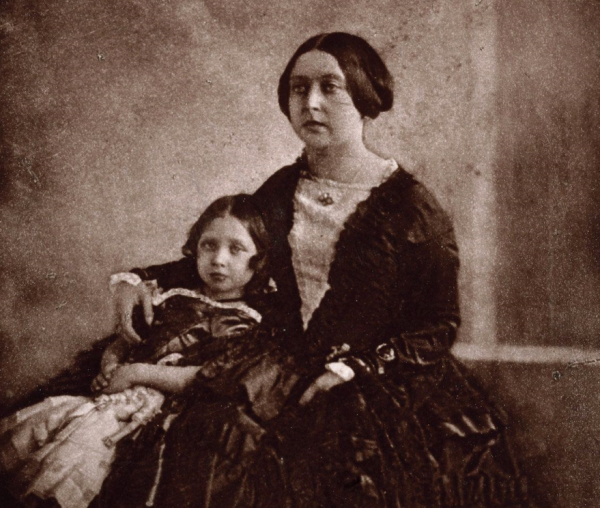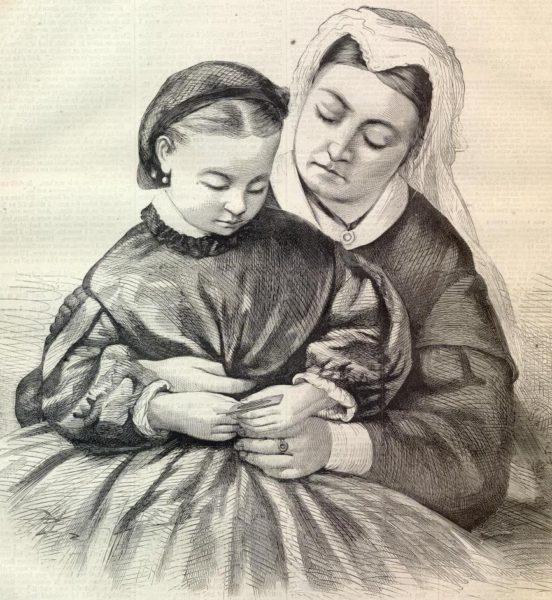Ashera is a Marriage and Family Therapist with an extensive background in sexual health education. You can ask her stuff anonymously and she won’t get weirded out. Seriously, try her. Send your queries through our anonymous contact form here.
Dear Smashera,
My relationship with my mother is…complicated. I haven’t spoken to her in several years due to it being toxic and painful. I always feel super weird around Mother’s Day and I don’t really know what to do about it. I know it’s just another day and I should just ignore it, but I can’t seem to. Help?
Sincerely,
Motherless
Dear Motherless,
First of all, I’m sorry that you’re hurting. The relationships between parents and children are so intense. After all, your parents are the first people you know as a tiny human. They teach you how to interact with everyone else, so toxicity within those relationships can really wreak havoc on a person’s sense of well-being. Childhood trauma, abuse, neglect, or just plain “messed-up-ness” is super hard to shed, but it is possible to move through it and to heal.

Each one of us is born into a family system, none of which is perfect, but on a continuum of “functional” and “dysfunctional.” Every family has a package of issues and family patterns that they bestow upon each member; how to act, what to value, and what trust and love look like. Not all of these patterns are healthy, but they’re hard to unlearn so people play them out repeatedly throughout their lives. They may never really figure out where the pattern comes from, but it’s deep-seated and causes plenty of issues.
A big first step towards healing is to gain understanding of yourself and where you come from. Genograms are a really nifty tool to figure out what patterns you learned from your family. A genogram looks like a family tree, but on steroids. They’re made by making a basic family tree, but then filling in what relationships between people are like. You can fill in affairs, abuse, health concerns, emotional cutoffs, and all sorts of dynamic differences between people. If you have family members that you can talk to, it’s nice to have some conversations with them about what happened within their families of origin and what lessons they learned as well.
Genograms can be used by people from all sorts of family configurations. Adoptees may find it helpful to complete one for their birth family (if they have information) and for their adoptive families. People that grew up in various foster situations can also modify how they use their genogram to compare changes between the places they grew up. One of my favorite books, A Family Genogram Workbook, is loaded up with questions that can be useful to process all on their own. While the totality of a tool may not be fully useful for every situation, there are ways they can still be of help.

Finding out what patterns your family taught you provides insight into where things go wrong. You may notice that your family has lots of emotional cutoffs and that you tend to do that with relationships when things go awry. If you decide to become a parent, it can give you an idea of things you want to change for your little nuggets of joy. If you don’t like the lessons you learned growing up, you can be mindful not to impart it onto future generations.
In your case, this may provide you some insight into how your mother became a toxic person. While this insight may be helpful, it may not bring you the closure you need. After years of not speaking to her, there’s been a lot of anger and resentment festering and building pressure without an outlet. In some situations, it might be appropriate to try to bring in a mediator or therapist to get some of this out on the table, but in many situations this isn’t appropriate, helpful, or in cases such as death, possible. What then?
When a “closure conversation” is needed but completely impossible, there is a series of writing exercises that can help those emotional wounds start to heal. I would suggest to space these writing prompts out to one every week or two so you don’t overwhelm yourself emotionally. Finding a therapist or a ride-or-die friend to help you work on them is a super good idea. In the first week, write directly to your mother. Pour out all your anger and resentment. Say whatever you need to, you’re not going to actually send this to her (please don’t send it). It’s just for you to get it out of your head and onto a piece of paper.

The second letter, write back from your mother’s perspective. Have her acknowledge the pain she caused you, but imagine what she was thinking when she was hurting you. What could have caused her to act the way she did? How does she feel now? This is not an acknowledgement that her actions were right, but it places her in context. Bonus, you can rest easier def feeling like the bigger person. Look at all that empathy!
Carry the conversation through in the third letter. Write back to her. Tell her what you’ve learned and what you would like her to know. Finally, in a fourth letter, write to yourself again from your mother’s perspective. Give yourself all the love and acknowledgment she did not. Have her tell you what you most need to hear from her in order to move forward.
No matter what route you go, be sure to care for yourself. Self-care is important each and every day, but it is doubly so on days that are hard for you, like Mother’s Day. Make sure you eat good food, drink enough water, and try to do something that makes you laugh a little bit. Most importantly, reach out when you know one of those tough days is coming up. Find a friend to spend time with or maybe allow yourself time to straight up veg out to some Netflix. Pay attention to what you need and treat yo’self.
Remember, the process of growth and self-change is not an easy one, but it is worth it.
Kisses,
Smashera